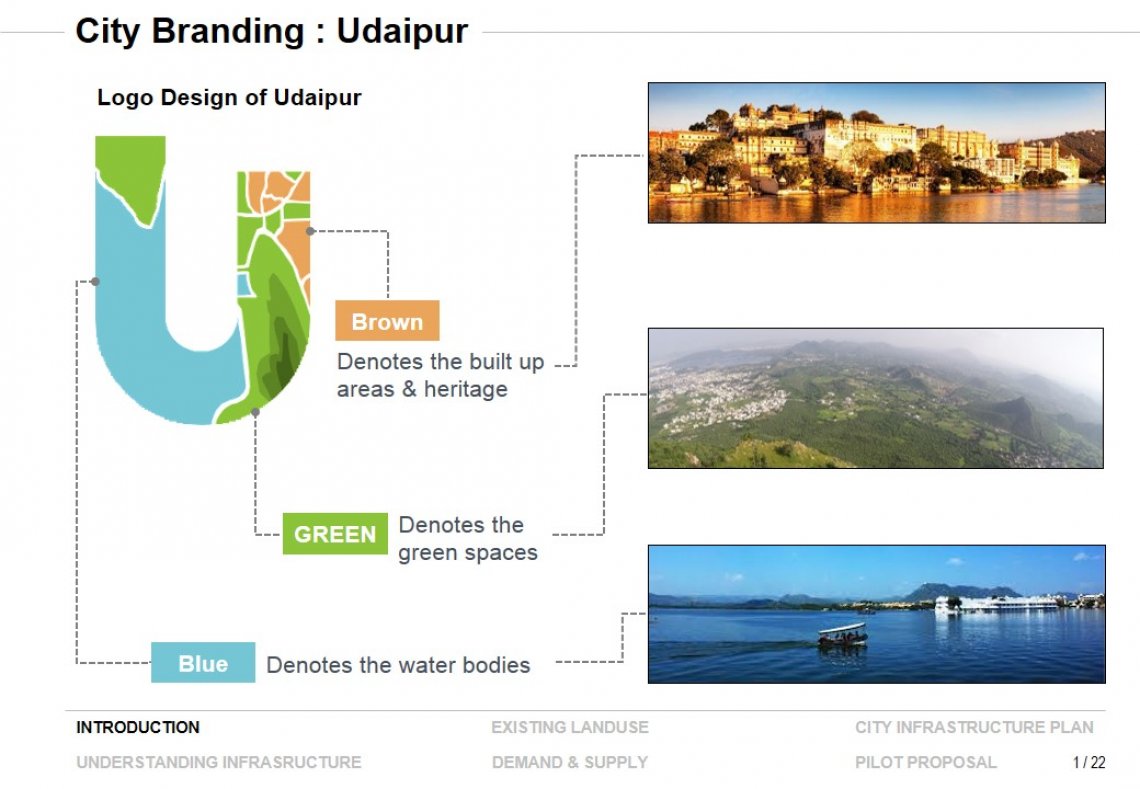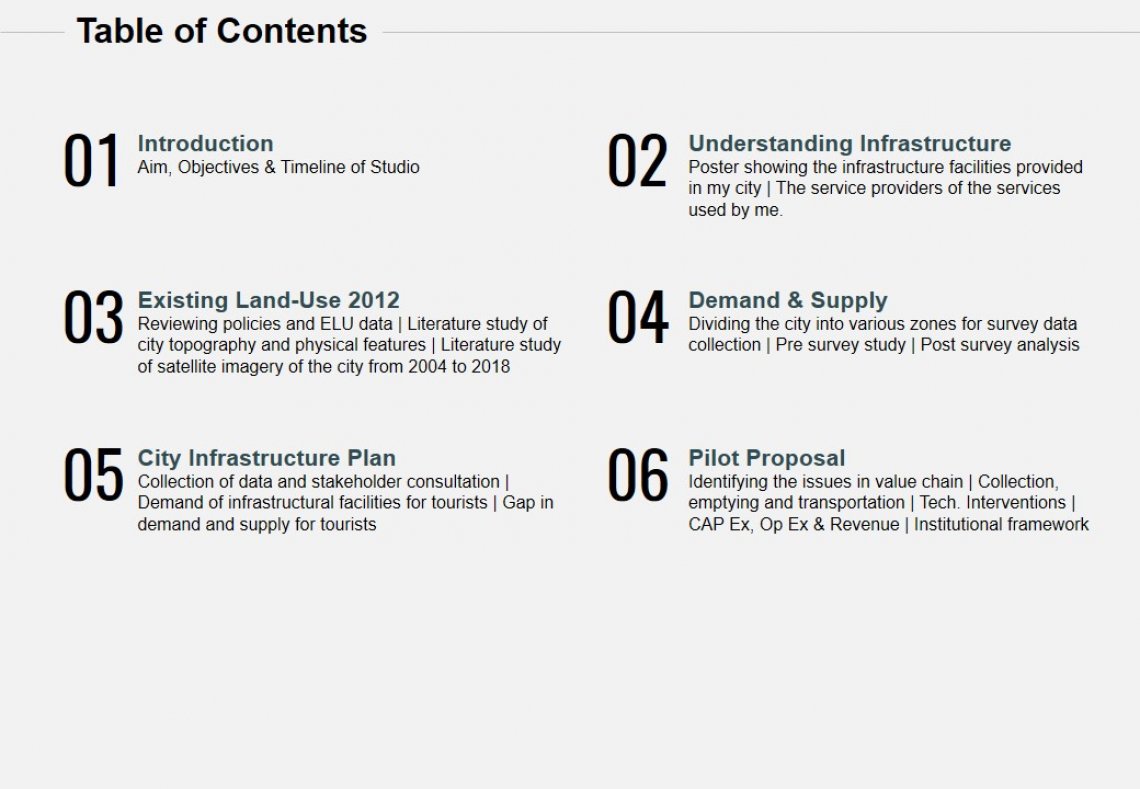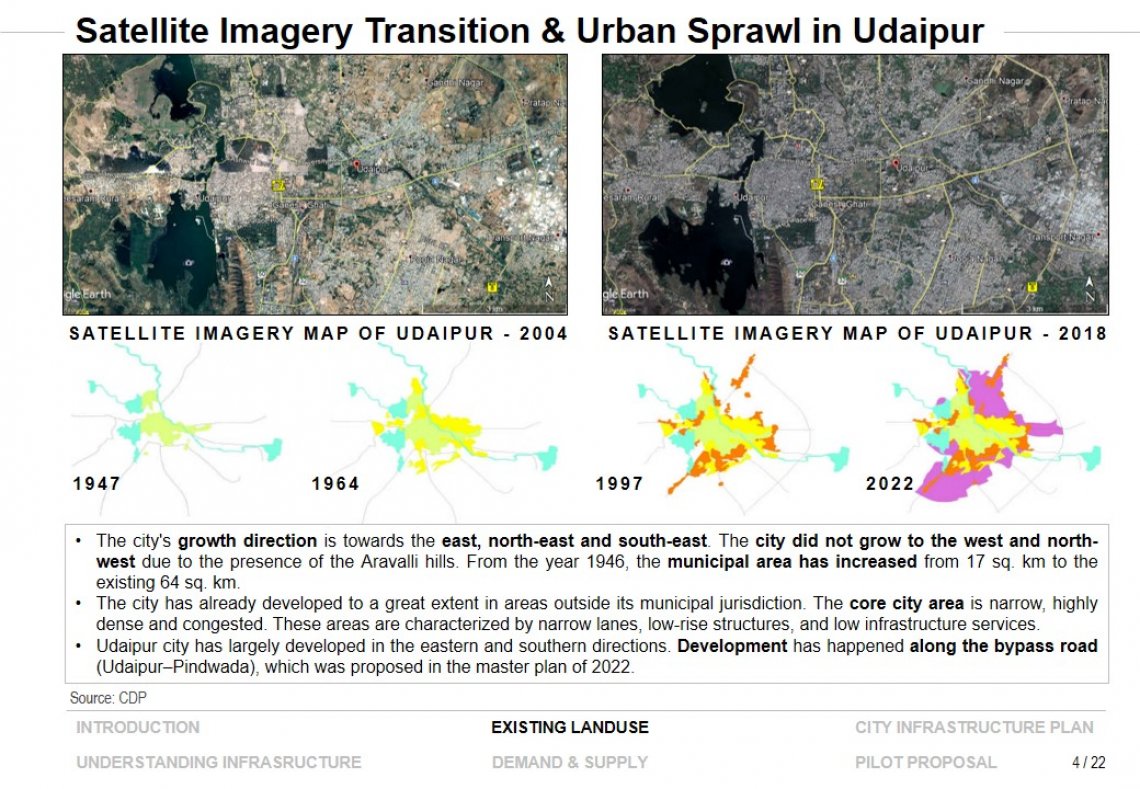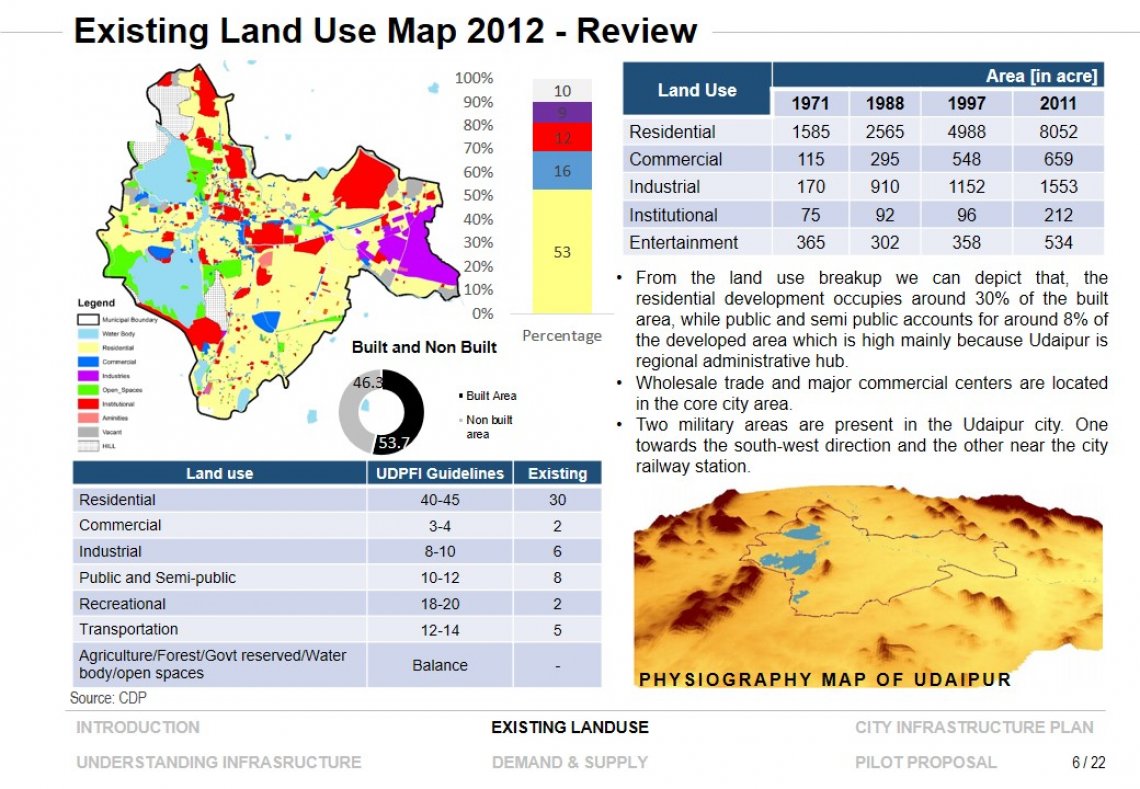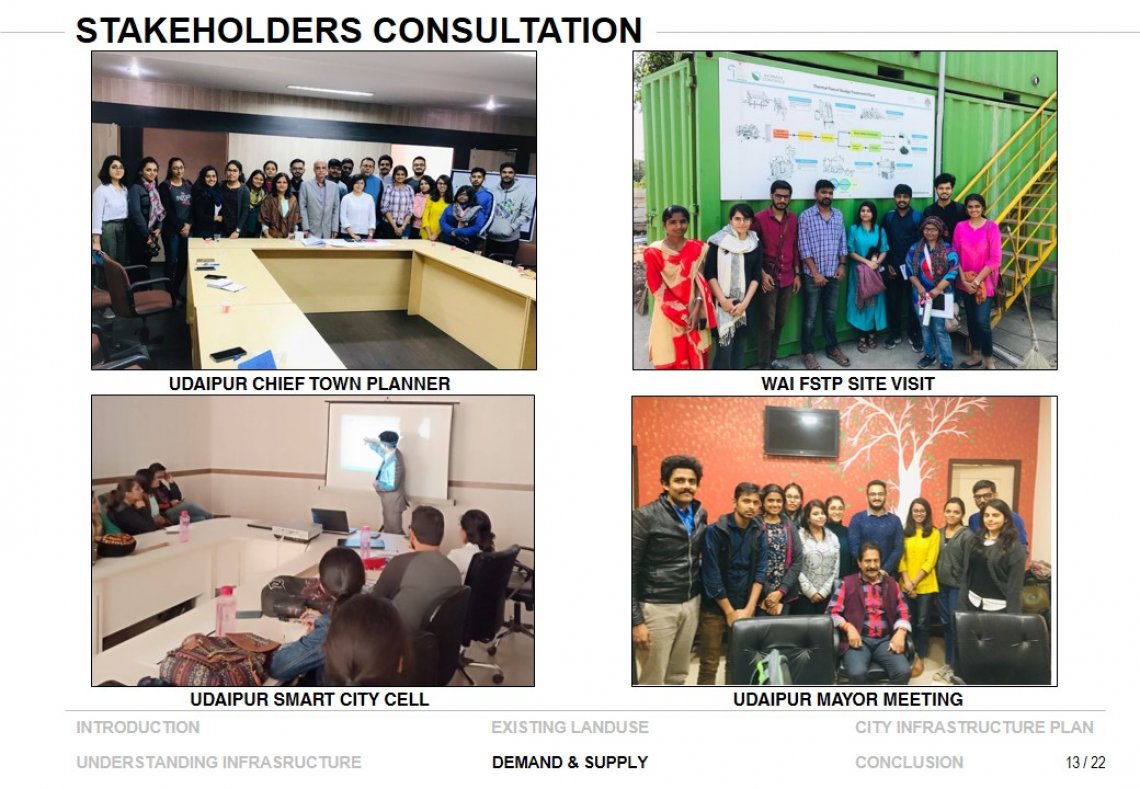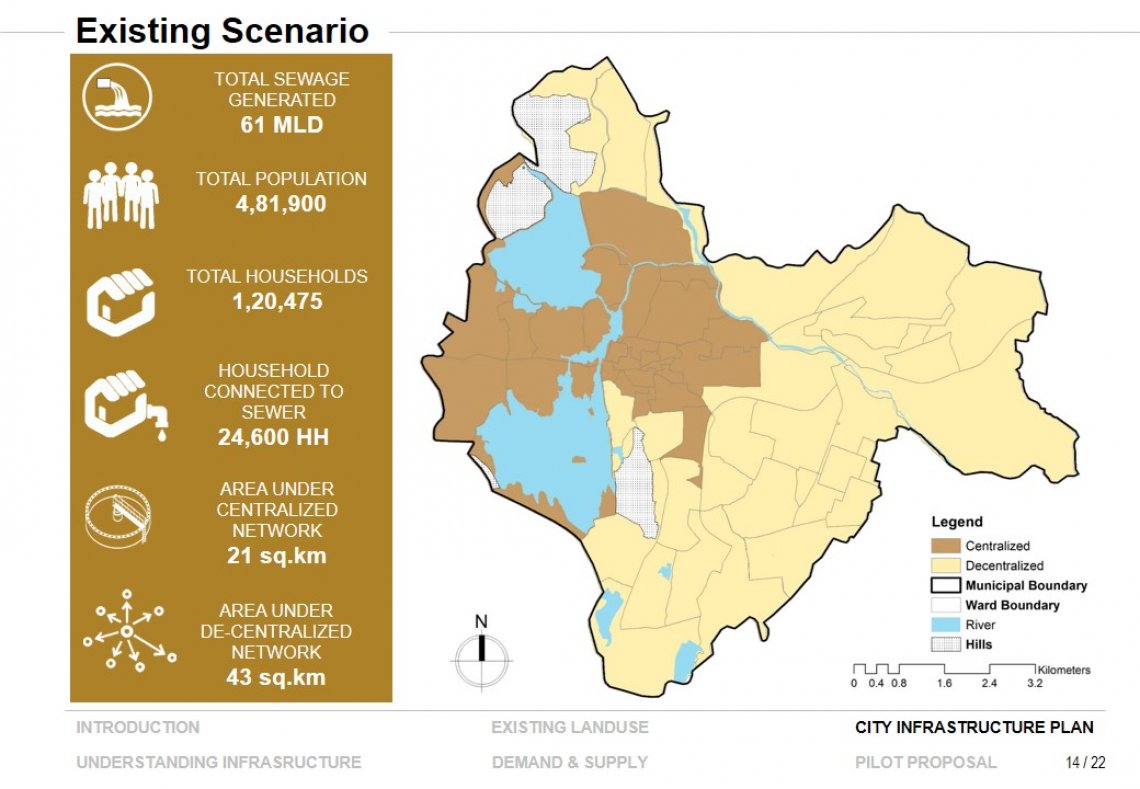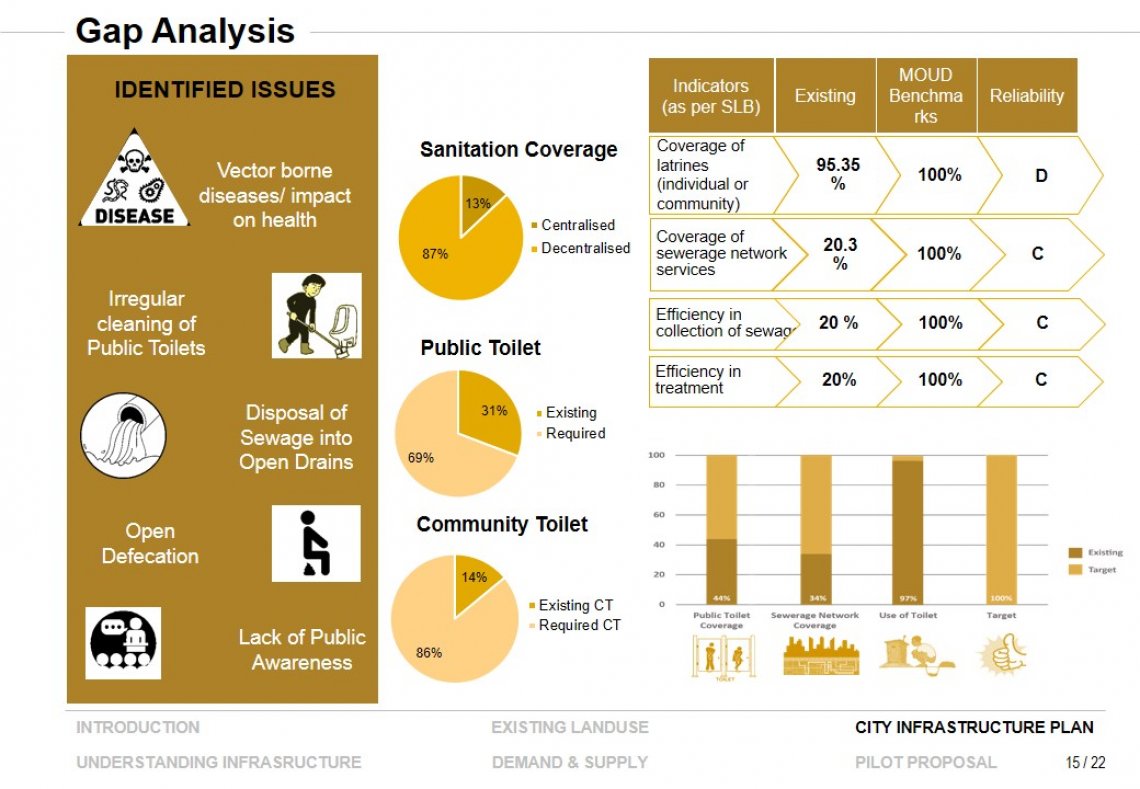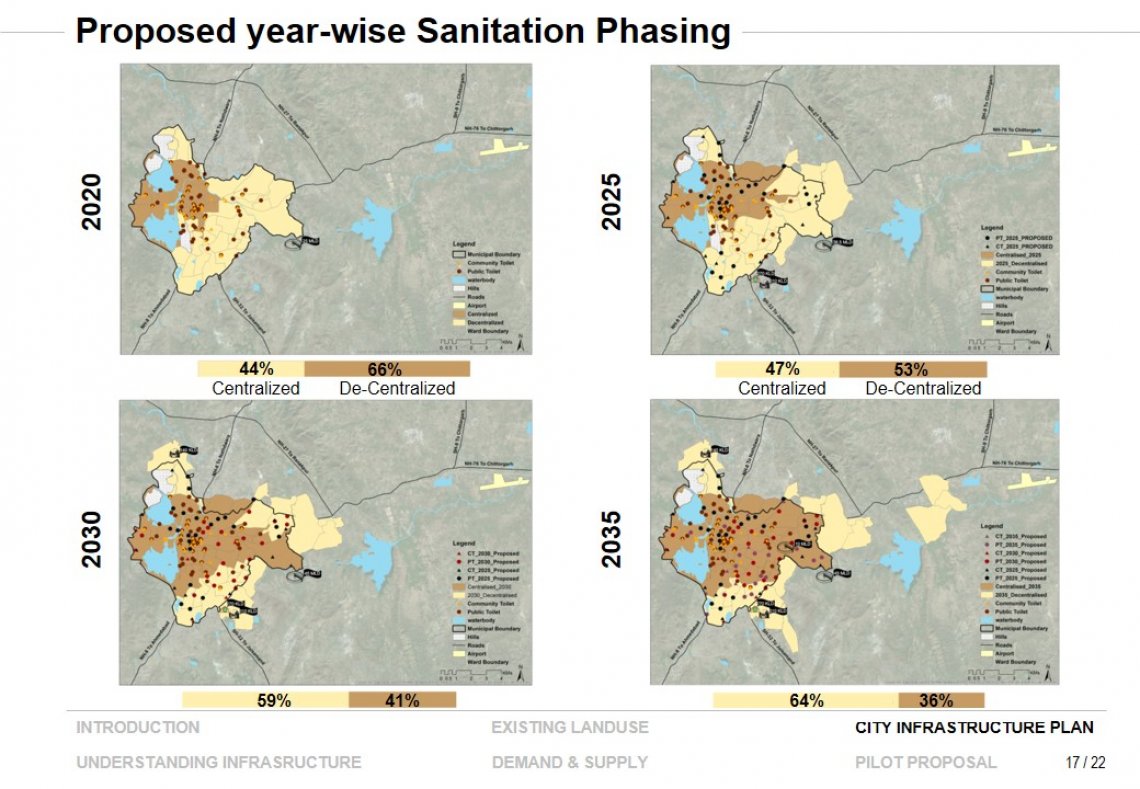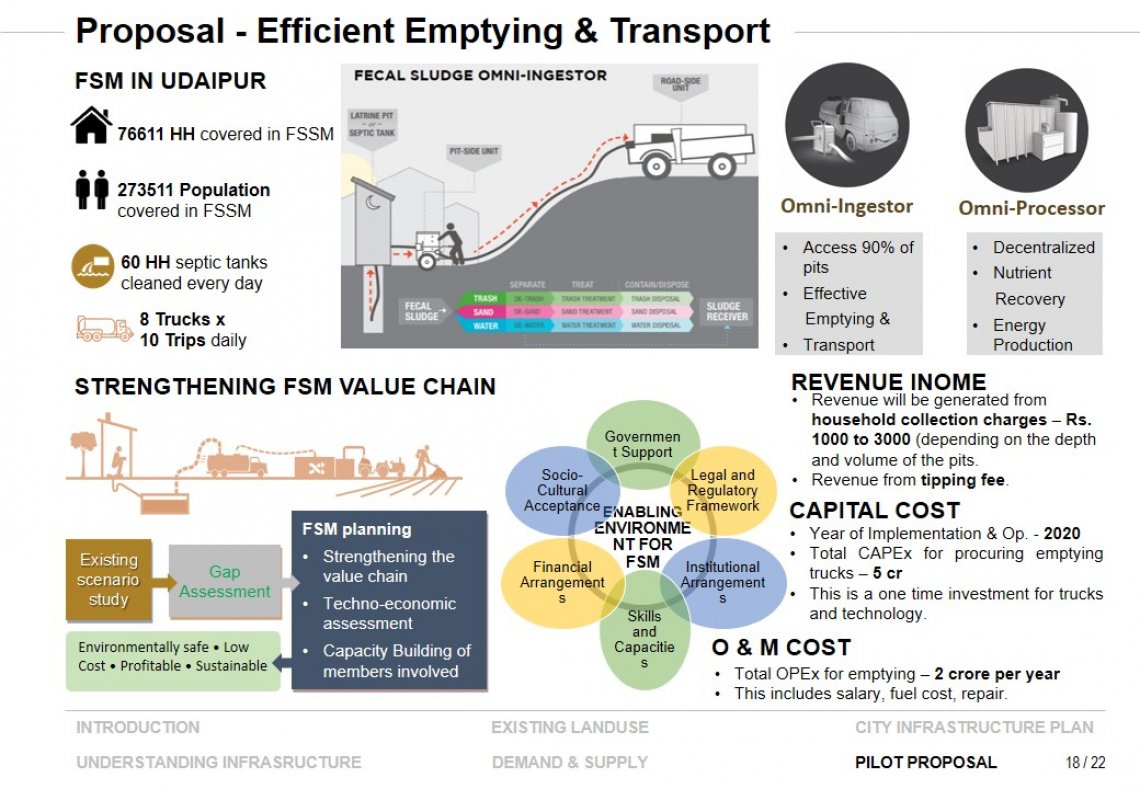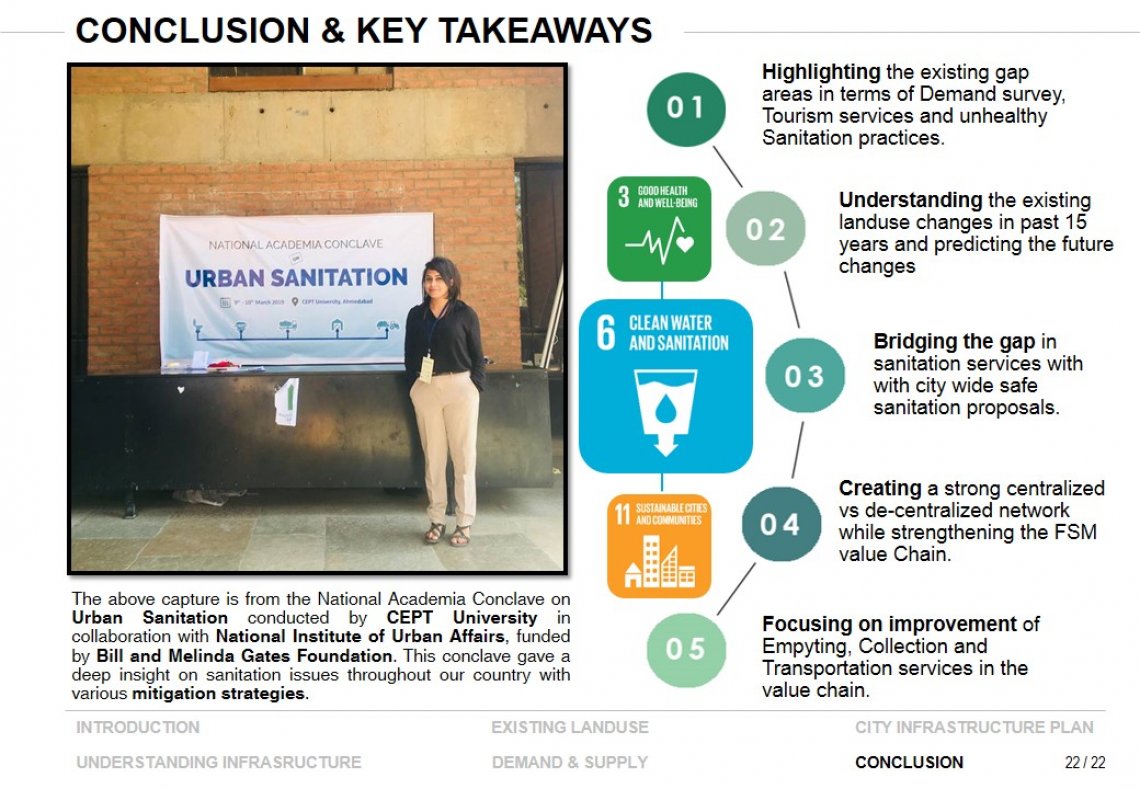Your browser is out-of-date!
For a richer surfing experience on our website, please update your browser. Update my browser now!
For a richer surfing experience on our website, please update your browser. Update my browser now!
Udaipur famously known as the "City of Lakes", is a city governed by Municipal Corporation which comes under Udaipur Metropolitan Region. It is the historic capital of the kingdom of Mewar in the former Rajputana Agency. The city of Udaipur is 264 kms from the city of Ahmedabad. Each area within the city is unique. Spatial growth restricted in North-west due to topographical reason. The city now continues to grow southwards along the NH-8 and NH -76 which connects it to Ahmedabad & Kota respectively. Hence, as a part of the Second Semester Studio work under Faculty of Planning, we were assigned to work on a City Wide Infrastructure Plan by conducting a thorough study and understanding the complexities of the city from a planner’s perspectives. The studio aims to develop a detailed understanding of how City level Infrastructure Plans are prepared and integrated with city’s urban planning framework. This portfolio starts with the understanding of the city through literature study, policy reviews and landuse analysis. This is followed by a baseline city profiling through demand surveys, supply surveys, gap analysis as well as stakeholder consultation. All the above data collection and gap analysis helped us understand the existing scenario of the city and envision a better future for Udaipur by bridging the gap in infrastructural services. The studio CIP is divided into five thematic areas namely Integrated Water Management, City Wide Sanitation, Solid Waste Management, Blue & Green Infrastructure and Local Economy Development. My area of focus is Sanitation by proposing decentralization vs centralization sanitation practices throughout the city. The proposal is divided into 4 phases from 2020 to 2035 with a time frame of 5 years each. The CIP is followed by a Pilot Project mainly focusing on Strengthening the FSM value chain of Udaipur. This is a micro level proposal detailing out the collection, emptying and transportation of faecal sludge in decentralized zones of the city. The pilot also includes some of the technological as well as financial assessment which will serve best for a safe sanitation practice and maintain good health & hygiene among the people of the city.
